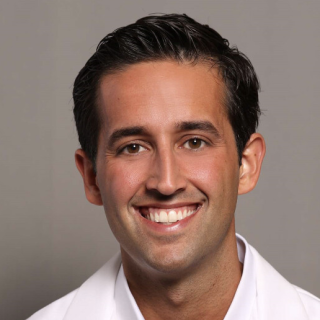
Since the beginning of MS-4, I have lived in six different cities and have been fortunate to call a Michigan apple orchard, an island on the Mississippi River, and a little apartment in Boston home. I come to you as an emergency medicine intern, fully immersed in the second month of residency and excited about what the future holds as a newly-minted physician-in-training.
As I continue to integrate myself in a new city and role, I want to take a moment to look back and offer my perspective on a few key qualities that separate good medical students from superb ones. These skills and behavior cornerstones are ones you can begin to cultivate on your path as a medical student, so long as you possess a growth mindset and employ daily intentionality.
Am I learning?
Ask this question each day, and challenge yourself to find meaning in daily interactions with patients, physicians, and, most of all, support staff. Non-linear learning accelerates when you are thrown into uncomfortable situations. For example, in my first few days as a visiting medical student at Harvard and the University of Pennsylvania, I showed up early and pre-read on physician’s patients. Attending physicians noticed, and made the effort to teach me their craft and included me in meaningful experiences: the opportunity to learn how to perform a lumbar puncture and sit it on a family meeting where a pediatric cancer diagnosis was revealed were just a few.
Be Worthy of Trust and Confidence
During an internship with the US Federal Government prior to medical school, I learned about accountability by watching how federal law enforcement agents conducted themselves. The motto of the agency was, “Worthy of Trust and Confidence.” Become a medical student who is worthy of trust and confidence. Show up early, volunteer for little tasks such as throwing out the garbage after a long operative procedure, and learn the names of the support staff and use them. These daily interactions build credit in the bank account of emotional intelligence faster than a one-click Amazon Prime order.
Find Candid Mentors
Be self-reflective and identify people in your sphere who can provide accurate feedback. As entrepreneur Anastasia Alt wrote in her acclaimed article about pronoia, “feedback can be personal development Miracle Grow, but it sometimes hides inside in the cow’s manure of criticism.” Moreover, great feedback is timely and actionable, allowing the recipient to course-correct and put into practice the lesson. Consider asking this question next time you are speaking with a physician whom you respect: “What separates great medical students from good ones?” Then, integrate the qualities you hear into your daily practice. We spend so much time in medical school talking about meeting expectations when we should be challenging students to exceed them.
Seize Opportunities and Assert Yourself
During my first year of medical school, I visited a friend who was a then medical student at the Mayo Clinic. I reached out to five neurosurgeons prior to arrival and asked if they would be willing to let me shadow them. I spent all day in the operating room with one particular neurosurgeon as he resected pediatric brain tumors, and we spoke about his research in finding a cure for DIPG, a universally fatal pediatric brain tumor that no child has beaten. Upon finishing our talk, I made the ask and communicated my desire to participate in his work should an opportunity arise. I spent six weeks that following summer working at the Mayo Clinic as we sought new therapies for this tumor. Here is my question for you: what opportunities are present in your life for which you have not “made the ask?”
Authenticity and Consistency are Superpowers
Lee Cockerell, former Executive Vice President of Walt Disney World and now author of Creating Magic, speaks about the three fuels that drive human performance: appreciation, recognition, and encouragement. Translation: as a medical student, be intentional with your words and actions, invest your time, and attempt to have positive interactions with as many people as possible.
Secret Sauce: Adapt Well
As a former college baseball player, I failed often and made constant course corrections. I continue to call to mind the mindset I learned from my time as a catcher: fail, learn quickly, and adapt. Moving to Boston, Philadelphia, and Memphis involved learning how to maneuver and survive in unfamiliar cities. Possessing a level of intellectual and personal flexibility will serve you well if you decide to accept the challenge of pursuing these kinds of professional development opportunities, otherwise known as away elective rotations.
Handwritten Gratitude
Being a generous person goes farther than you think. I endeavor to write one thank you note each evening consisting of a few lines and mail it the following day. Cultivating an attitude of gratitude is one of life’s vital lessons hidden in plain view. You will also find that people hold onto your letters as they find meaning from them. My favorite response came from my second-grade teacher, who told me she was proud that I realized my dream and became a physician. Do not underestimate your impact on people.
Listen More Than You Speak
I have come to realize that many people confuse listening for merely waiting for their turn to speak. When meeting someone for coffee or lunch, I try to keep the conversation where they speak 60% of the time and I speak 40%. You will find that you learn much information if you listen more than you speak.
I wish you well in your journey as you begin to cross the chasm. I hope a few of these lessons can serve you as you progress in your journey of self-awareness and as you move towards becoming a physician.
Nicholas Cozzi, MD, MBA, is an emergency medicine resident in Grand Rapids, MI passionate about health delivery innovation.







